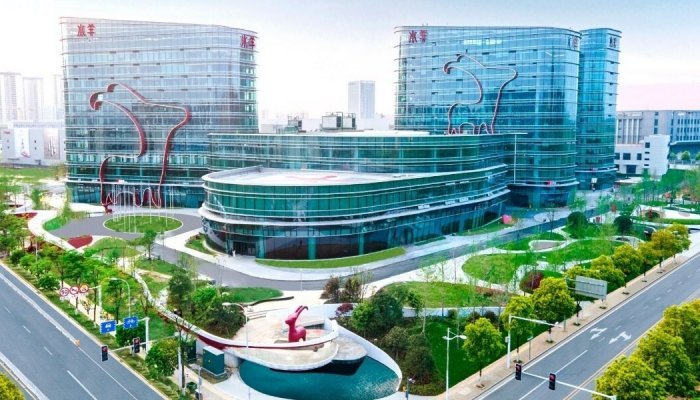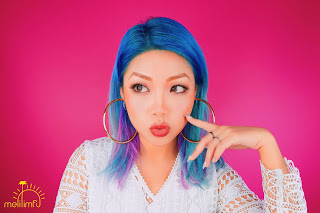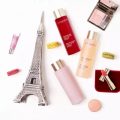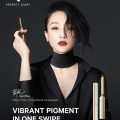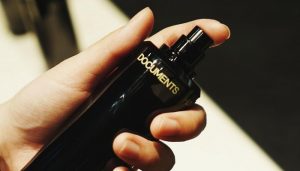By purchasing French brands Pier Augé and EviDenS de Beauté and recently opening the S’Young City campus around its Changsha headquarters, in the province of Hunan, Chinese group S’Young International (水羊股份) made its objectives clear. Its excellent 2022 results helped the group enter the Top 100 of Women’s Wear Daily (WWD) Beauty Inc. for the first time, directly at the 49th rank.
“In the past, S’Young Group was more driven by the dual business of operating self-owned brands and helping foreign brands to better distribute in China”, says Juliette Duveau, the co-founder of consulting agency The Chinese Pulse. But the group founded in 2018 is no longer content with its role of distribution partner in China. Last year, S’Young purchased French brands Pier Augé and EviDenS de Beauté.
“We can foresee that S’Young will integrate the international channels and R&D techniques of these two French brands, paving the way to the international market for its other self-owned brands in the future”, she adds.
These equity acquisitions of foreign brands also contribute to upgrading the group’s image, from Middle-Low end to more high-end. S’Young’s own brands – such as Yunifang (御泥坊), which has over 10M followers on Tmall – mainly target the Chinese mass market with a huge customer base, especially in lower tier cities. Through the acquisition of foreign brands, the Group could reach more affluent customers in higher tier cities and might develop higher-end products to go global.
Sensitive skins and niche brands
Last year, S’Young also acquired the Chinese brand Dermdoc (戴摩道克) specialized in skin repair from the group Hangzhou Songyang. Analysts noted it made S’Young enter the territory of Winona (薇诺娜), Chinese group Bethany’s brand positioned on sensitive skin treatment, which ranked in the Top 10 of national brands at the recent June shopping festival on several e-commerce platforms.
“Since 2017, the growth rate of China’s sensitive skincare market has been higher than the overall skincare market’s, and it has strengthened, especially after the epidemic”, observes Juliette Duveau.
According to the 2022 Chinese Sensitive Skin Market Trend report, issued by Taobao and T-mall, around 45% of the Chinese population have a sensitive skin, and most of them are women in their twenties living in tier 2 and tier 3 cities. In this field, consumers mainly expect products focused on skin barrier enhancement, skin redness repair, and anti-inflammation.
S’Young also introduces itself as the pioneer of the “CP (Chinese Partner) model”, which consists in helping global brands grow and adapt to the Chinese market, by providing a comprehensive solution for the brand, product adaptation, sales, and distribution networks (online and offline).
This approach is different from the “Tmall partner model” offered by the Chinese platform to global brands used to cross-border trade with China. “While the Tmall partner model only focuses on the digital ecosystem of its own group, S’Young can provide diversified online and offline sales channels (shopping malls, select shops)”, explains Juliette Duveau. Last year, the group actually opened a physical store called Shuiyangtang (水羊堂, “the temple of S’Young”) in Changsha, to offer all its brands and its partners’ on a 300-m2 area.
Given the brands that trust S’Young with the CP model (Kiko Milano, Fenty Beauty, Liérac…), the group has positioned itself on a rather premium niche segment. “Niche brands hold a relatively small share of the market and have a relatively low awareness compared to established brands. Competition on China’s beauty market is very fierce. But as Chinese consumers become more sophisticated and pursue personality expression, niche brands with sharp brand identities and values ushered in their opportunities. The continued popularity of niche brands challenges the established or mainstream beauty brands who tend to re-examine their brand image to better meet the needs of the young generation.”
Still, S’Young’s many initiatives have not received much praise from the Chinese financial press, which points at the group’s declining profitability (it is listed on the Shenzhen Stock Exchange) and the need to find growth drivers on the now highly competitive Chinese market. “For now, the group will remain focused on the Chinese market”, says Juliette Duveau. “There is still a long way to go before it actually goes global”.
This article was commissioned and published by Premium Beauty News.
